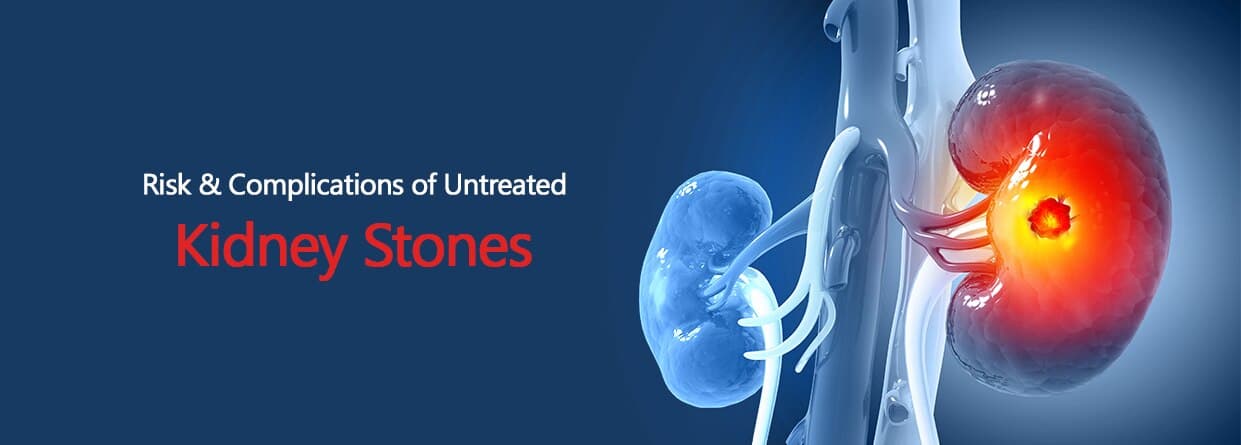
Hard deposits made of minerals and salts that form inside the kidneys. Develops in concentrated urine where minerals crystallise and clump together. Small stones often pass unnoticed, larger ones can block the urinary tract. Severe unbearable pain is the most noticeable symptom w.r.t. Kidney stones.
Kidney stones are the primary contributors to the rising number of Chronic Kidney Diseases in India. This is especially common among individuals with busy lifestyles and irregular dietary habits. As per a report shared by The Lancet, renal failures in India are on the rise. Eerily named The Million Death Study, it shows that almost all chronic kidney diseases have gone up by 50% in the last two decades. And the numbers are still rising.
While kidney stones may start small and seem harmless, untreated kidney stones can lead to serious complications, threatening your overall health. Let’s explore the risks, symptoms, and treatments for kidney stones, to understand why timely intervention is crucial. If you have any of the symptoms or have been previously diagnosed with kidney stones, do not delay treatment. Instead of ignoring kidney stones, reach out to us and consult the best urologist in Kolkata, at CMRI Hospital.
Poor lifestyle is one of the most significant causes of recurring kidney stones. Without making any changes and ignoring kidney stones can lead to severe and irreversible complications, like:
If you have had a near miss experience with kidney stones then it is important that you consider the above risks. These further highlight the importance of an early diagnosis and management of kidney stones.
If the above concerns have been duly understood then the next step is identifying the triggers or factors that can increase the likelihood of complications. Pay attention to these aspects in your daily life to help eliminate the risk of severe kidney damage:
Preventing kidney stones and addressing them early can save you from a world of discomfort and health issues. Here’s how:
Routine screenings can identify stones early, even before symptoms appear, allowing for timely intervention.
If you experience any of these symptoms, it’s crucial to consult a healthcare professional immediately.
When kidney stones are left untreated, they can grow larger and more problematic. Persistent blockages can lead to swelling, infections, and significant damage to kidney tissue. Over time, untreated stones may escalate to chronic kidney disease, severely impairing kidney function and overall health.
Ignoring kidney stones may seem tempting, especially if symptoms are mild. However, the risks far outweigh the convenience of avoidance. By adopting healthier lifestyle choices, seeking timely treatment, and staying vigilant, you can protect yourself from the long-term complications of untreated kidney stones.
Let this be a reminder to prioritise your health today. Prevention is better than cure—and when it comes to kidney stones, timely action can make all the difference. If you have any of the symptoms or have been previously diagnosed with kidney stones, do not delay treatment. Instead of ignoring kidney stones, reach out to us and consult the best urologist in your city.
Kidney stones form when minerals and salts in the urine crystallize and stick together. This often occurs due to dehydration, dietary factors, or certain medical conditions.
Common signs include severe pain in the back or abdomen, frequent urination, and blood in the urine. Diagnostic tests like ultrasound or CT scans can confirm their presence.
Yes, one of the hallmark symptoms of kidney stones is sharp, stabbing pain in the back or side, which may radiate to the lower abdomen or groin.
Yes, untreated kidney stones can obstruct urine flow and cause infections, leading to long-term kidney damage or even kidney failure in severe cases.
Similar Renal Sciences Blogs
Book Your Appointment TODAY
© 2024 CMRI Kolkata. All Rights Reserved.